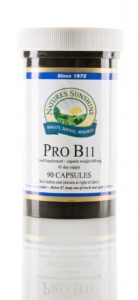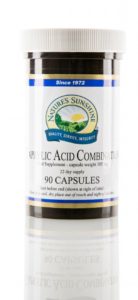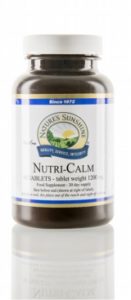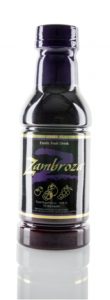Having a healthy gut flora is incredibly important for your overall health.
Interestingly, many diet, lifestyle and other environmental factors can negatively affect your gut bacteria.

What Are Gut Bacteria and Why Are They Important?
Hundreds of species of bacteria reside in your gut. Some of them are friendly, while others are not.
Most bacteria in the gut belong to one of four groups: Firmicutes, Bacteroidetes, Actinobacteria or Proteobacteria (1, 2).
Each group plays a role in your health and requires different nutrients for growth (3).
The friendly gut bacteria are important for digestion. They destroy harmful bacteria and other microorganisms and produce vitamin K, folate and short-chain fatty acids (4, 5).
When the gut flora contains too many harmful bacteria and not enough friendly bacteria, an imbalance can occur. This is known as dysbiosis (6, 7).
Both dysbiosis and a reduction in gut flora diversity have been linked to insulin resistance, weight gain, inflammation, obesity, inflammatory bowel disease and colorectal cancer (8, 9, 10, 11).
Therefore, it’s important to keep your gut bacteria as friendly and abundant as possible.
Without further ado, here are 8 surprising things that can cause harm to your gut bacteria.
1. Not Eating a Diverse Range of Foods

Generally, a rich and diverse gut flora is considered to be a healthy one (12).
A lack of diversity within the gut bacteria limits recovery from harmful influences, such as infection or antibiotics (13, 14).
A diet consisting of a wide variety of whole foods, such as fruits, vegetables and whole grains, can lead to a more diverse gut flora. In fact, changing up your diet can alter your gut flora profile after only a few days (12, 15, 16).
This is because the food you eat provides nutrients that help bacteria grow. A diet rich in whole foods provides your gut with a variety of nutrients that help promote the growth of different types of bacteria, resulting in a more diverse gut flora.
Unfortunately, over the past 50 years, much of the diversity in the Western diet has been lost. Today, 75% of the world’s food supply comes from only 12 plants and five animal species (12).
Interestingly, studies show that those living in rural regions of Africa and South America have a more diverse gut flora than those living in the US and Europe (17, 18).
Their diets are generally unaffected by the Western world and are rich in fiber and a variety of plant protein sources.
Summary: A diet lacking in a variety of different whole foods can result in a loss of gut flora diversity. This may have a number of negative health effects.
2. Lack of Prebiotics in the Diet

Prebiotics are a type of fibre that passes through the body undigested and promotes the growth and activity of friendly gut bacteria (19).
Many foods, including fruits, vegetables and whole grains, naturally contain prebiotic fiber.
A lack of them in the diet may be harmful to your overall digestive health (20).
Foods high in prebiotics include:



Bananas





One study in 30 obese women found that taking a daily prebiotic supplement for three months promoted the growth of the healthy bacteria Bifidobacterium and Faecalibacterium (21).
Prebiotic fiber supplements also promote the production of short-chain fatty acids (22).
These fatty acids are the main nutrient source for the cells in your colon. They can be absorbed into your blood, where they promote metabolic and digestive health, reduce inflammation and can reduce the risk of colorectal cancer (23, 24).
Moreover, foods rich in 
Summary: Prebiotics are a type of fiber commonly found in fruits, vegetables and whole grains. They are important for increasing healthy gut bacteria like Bifidobacterium.
3. Drinking Too Much Alcohol

Alcohol is addictive, highly toxic and can have harmful physical and mental effects when consumed in large amounts (27, 28).
In terms of gut health, chronic alcohol consumption can cause serious problems, including dysbiosis.
One study examined the gut flora of 41 alcoholics and compared them to 10 healthy individuals who consumed little-to-no alcohol. Dysbiosis was present in 27% of the alcoholic population, but it was not present in any of the healthy individuals (29).
Another study compared the effects of three different types of alcohol on gut health.
For 20 days, each individual consumed 9.2 ounces (272 ml) of red wine, the same amount of de-alcoholized red wine or 3.4 ounces (100 ml) of gin each day (30).
Gin decreased the number of beneficial gut bacteria, whereas red wine actually increased the abundance of bacteria known to promote gut health and decreased the number of harmful gut bacteria like Clostridium.
The beneficial effect of moderate red wine consumption on gut bacteria appears to be due to its polyphenol content.
Polyphenols are plant compounds that escape digestion and are broken down by gut bacteria. They may also help reduce blood pressure and improve cholesterol (31, 32).
Summary: Generally speaking, alcohol consumption has a harmful effect on gut bacteria. However, the polyphenol content in red wine may have a protective effect on gut bacteria when consumed in moderation.
4. Antibiotic Use
Antibiotics are important medicines used to treat infections and diseases caused by bacteria, such as urinary tract infections and strep throat.
They work by either killing bacteria or preventing them from multiplying and have saved millions of lives over the past 80 years.
However, one of their drawbacks is that they affect both good and bad bacteria. In fact, even a single antibiotic treatment can lead to harmful changes in the composition and diversity of the gut flora (33, 34, 35).
Antibiotics usually cause a short-term decline in beneficial bacteria, such as Bifidobacteria and Lactobacilli, and can temporarily increase harmful bacteria like Clostridium (36).
However, antibiotics can also lead to long-term alterations in the gut flora. After completing a dose of antibiotics, most bacteria return after 1–4 weeks, but their numbers often don’t return to previous levels (37, 38, 39).
In fact, one study found that a single dose of antibiotics reduced the diversity of Bacteroides, one of the most dominant bacterial groups, and increased the number of resistant strains. These effects remained for up to two years (40).
Summary: Antibiotics can affect the diversity and composition of the gut flora, even in cases of short-term use. This can have harmful effects on gut bacteria that may last for as long as two years.
5. Lack of Regular Physical Activity

Physical activity is simply defined as any movement of the body that burns energy.
Walking, gardening, swimming and cycling are all examples of physical activity.
Being physically active has a number of health benefits, including weight loss, lower stress levels and a reduced risk of chronic disease (41, 42, 43, 44).
What’s more, recent studies suggest that physical activity may also alter the gut bacteria, improving gut health (45, 46, 47).
Higher fitness levels have been associated with a greater abundance of butyrate, a short-chain fatty acid that’s important for overall health, and butyrate-producing bacteria (48, 49).
One study found that professional rugby players had a more diverse gut flora and twice the number of bacterial families, compared to the control groups matched for body size, age and gender (50).
Moreover, athletes had higher levels of Akkermansia, a bacteria shown to play an important role in metabolic health and the prevention of obesity (50, 51).
Similar results have been reported in women.
A study compared the gut flora of 19 physically active women to 21 non-active women (52).
Active women had a higher abundance of health-promoting bacteria, including Bifidobacterium and Akkermansia, suggesting that regular physical activity, even at low-to-moderate intensities, can be beneficial.
Summary: Regular physical activity promotes the growth of beneficial gut bacteria, including Bifidobacterium and Akkermansia. These positive effects are not seen in individuals who are inactive.
6. Cigarette Smoking

Tobacco smoke is made up of thousands of chemicals, 70 of which can cause cancer (53).
Smoking causes harm to nearly every organ in the body and raises the risk of heart disease, stroke and lung cancer (54).
Cigarette smoking is also one of the most important environmental risk factors for inflammatory bowel disease, a disease characterized by ongoing inflammation of the digestive tract (55).
Furthermore, smokers are twice as likely to have Crohn’s disease, a common type of inflammatory bowel disease, compared to non-smokers (56).
In one study, smoking cessation increased gut flora diversity, which is a marker of a healthy gut (57).
Summary: Smoking has detrimental effects on nearly even organ in the body. Giving up smoking can improve gut health by increasing the diversity of the gut flora, and this can occur after only nine weeks.
7. Not Getting Enough Sleep

Getting good sleep is very important for overall health.
Studies show that sleep deprivation is linked to many diseases, including obesity and heart disease (58, 59, 60).
Sleep is so important that your body has its own time-keeping clock, known as your circadian rhythm (61).
It’s a 24-hour internal clock that affects your brain, body and hormones. It can keep you alert and awake, but it can also tell your body when it’s time to sleep (62, 63).
It appears that the gut also follows a daily circadian-like rhythm. Disrupting your body clock through a lack of sleep, shift work and eating late at night may have harmful effects on your gut bacteria (64, 65, 66).
A 2016 study was the first to explore the effects of short-term sleep deprivation on the composition of gut flora (67).
The study compared the effects of two nights of sleep deprivation (about 4 hours per night) versus two nights of normal sleep duration (8.5 hours) in nine men.
Two days of sleep deprivation caused subtle changes to the gut flora and increased the abundance of bacteria associated with weight gain, obesity, type 2 diabetes and fat metabolism (67, 68).
Nevertheless, sleep deprivation’s effects on gut bacteria is a new area of research. Further studies are required to determine the impact of sleep loss and poor sleep quality on gut health.
Summary: The body has a 24-hour internal clock called the circadian rhythm. Sleep deprivation can disrupt the circadian rhythm, and this appears to have harmful effects on gut bacteria.
8. Too Much Stress

Being healthy isn’t only about diet, physical activity and adequate sleep.
High stress levels can also have harmful effects on the body. In the gut, stress can increase sensitivity, reduce blood flow and alter the gut bacteria (69).
Studies in mice have shown that different types of stress, such as isolation, crowding and heat stress, can reduce gut flora diversity and alter gut profiles (70, 71, 72).
Stress exposure in mice also affects bacterial populations, causing an increase in potentially harmful bacteria like Clostridium and reducing beneficial populations of bacteria like Lactobacillus (73, 74).
One study in humans looked at the effect of stress on the composition of gut bacteria in 23 college students (75).
The composition of gut bacteria was analyzed at the beginning of the semester and at the end of the semester during final examinations.
The high stress associated with final exams caused a reduction in friendly bacteria, including Lactobacilli.
While promising, research on the relationship between stress and gut flora is fairly new, and human studies are currently limited.
Summary: Excess stress has been shown reduce gut flora diversity and alter gut flora profiles by increasing harmful bacteria like Clostridium and reducing beneficial bacteria like Lactobacilli.
How to Improve Gut Health
A healthy gut flora that’s high in friendly bacteria is essential for overall health.
Here are some tips on how to improve your gut flora:
Eat more prebiotic foods: Eat plenty of foods rich in prebiotic fibers, such as legumes, onions, asparagus, oats, bananas and others.
Consume more probiotics: Probiotics may increase the abundance of healthy gut bacteria. Fermented foods, such as yogurt, kimchi, kefir and tempeh, are all excellent sources. You could also start taking a probiotic supplement.
Make time for quality sleep: To improve sleep quality, try cutting out caffeine late in the day, sleeping in complete darkness and making a structured sleep routine so that you go to sleep and wake up at the same time each day.
Reduce stress: Regular exercise, meditation and deep breathing exercises may help reduce your stress levels. If you regularly feel overwhelmed with stress, you may want to consider seeing a psychologist.
Eat foods rich in polyphenols: Good sources include blueberries, red wine,
Summary: There are many ways to improve your gut health. Eating a healthy and diverse diet, getting good sleep and reducing stress levels are all great ways to help improve your gut flora.
The Bottom Line
Your gut bacteria play an important role in your overall health, and disruption to the gut flora has been linked to a number of health problems.
Diet and lifestyle factors, including poor sleep quality, alcohol consumption and inactivity, can harm your gut bacteria.
Alternatively, living a healthy lifestyle characterized by regular physical activity, low stress and a variety of whole foods is the best way to ensure a healthy gut flora.
In many cases, fermented foods and probiotic supplements may help as well.
This article was originally published on Authority Nutrition. Read the original article.
Maintaining healthy gut flora helps us to digest and absorb proteins, and produce B vitamins. It also helps to protect the gut wall and prevents more harmful organisms from establishing themselves.
- Pro B11 is a high potency, multi-strain, natural live bacteria supplement that provides almost 12 billion bacteria per serving. The eleven strains of bacteria in Pro B11ensure you replenish your gut with a variety of beneficial flora.
- Contains Bifidobacterium strains longum, infantis and bifidum, which help to create B vitamins. Lactobacillus strains release unique enzymes, which help to break down larger milk proteins for absorption.
- Use Pro B11 as part of your daily health maintenance programme, after your regular nutritional whole-body cleanse, and particularly after a course of antibiotics, that destroy the good and the bad bacteria in your body. Refrigerate to maintain freshness.
Nature’s Sunshine’s Caprylic Acid Combination is designed to nutritionally support the needs of those who want to rebalance their friendly gut bacteria.
- Live bacteria are a valuable part of a healthy diet as they act as natural health promoters by populating the gastrointestinal tract with friendly microbes.
- Each Caprylic Acid capsule is enteric coated to ensure that the contents are released in the intestinal tract.
- Each capsule contains Caprylic Acid (300mg), Elecampane root, Black Walnut hulls and Red Raspberry leaves.
- This product works in partnership with Pro B11, which provides almost 12 billion bacteria per serving.







